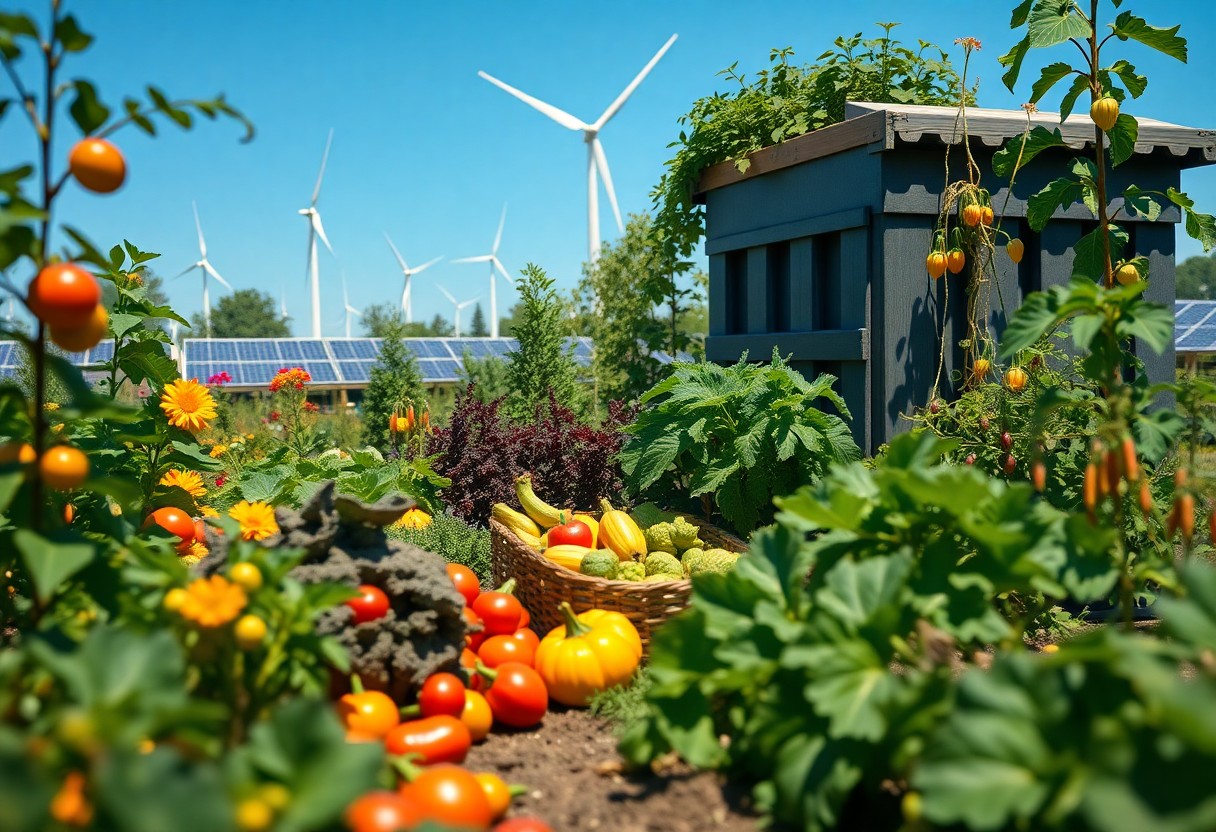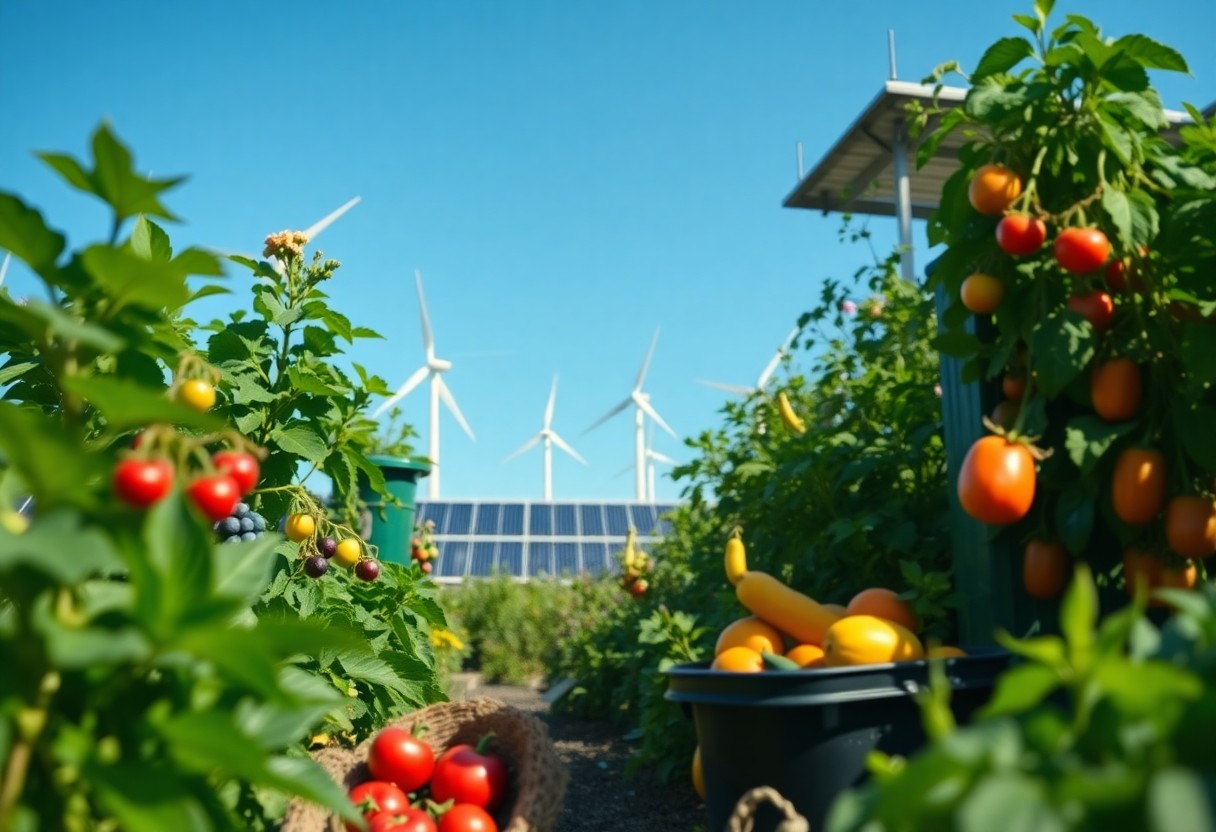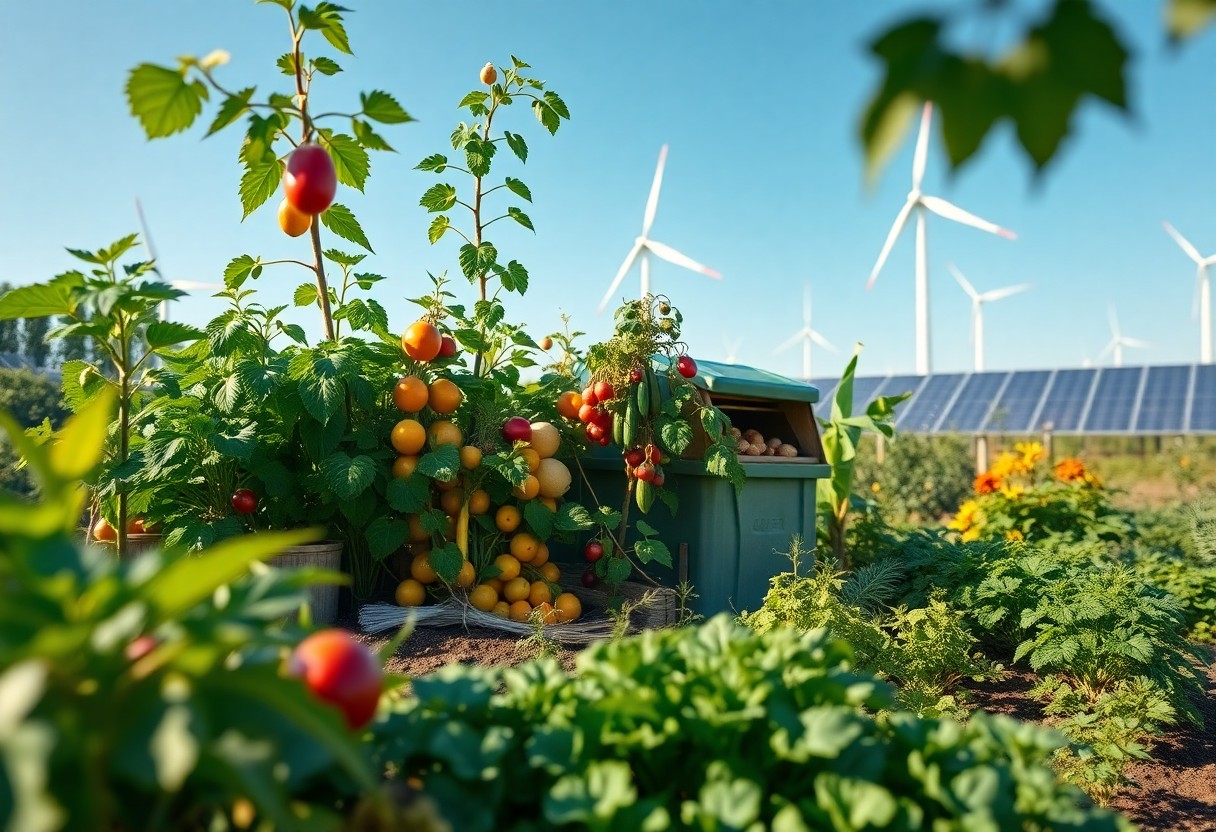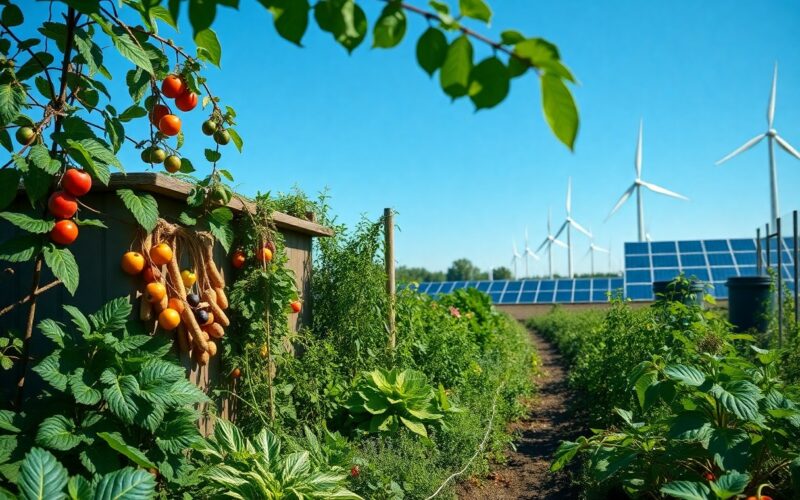With growing concerns about climate change and environmental degradation, you might be wondering how your dietary choices impact the planet. Adopting a plant-based diet can significantly reduce your carbon footprint, as animal agriculture is one of the leading contributors to greenhouse gas emissions, deforestation, and water pollution. By shifting towards plant-based foods, you not only support sustainable agriculture but also promote biodiversity and preserve precious natural resources. Exploring the implications of your eating habits may inspire you to make healthier, more environmentally friendly choices.
Table of Contents
Key Takeaways:
- Plant-based diets significantly reduce greenhouse gas emissions compared to diets high in animal products, contributing to lower overall environmental impact.
- Shifting towards plant-based foods can lead to decreased land and water usage, promoting more sustainable agricultural practices and biodiversity preservation.
- Adopting a plant-based diet helps mitigate climate change, as it requires fewer natural resources and produces less waste compared to conventional meat-based diets.

Understanding Plant-Based Diets
A plant-based diet focuses primarily on foods derived from plants, including fruits, vegetables, nuts, seeds, oils, whole grains, legumes, and beans. It does not mean you must become a vegetarian or vegan and entirely give up meat or animal products, but rather that you should increase your intake of plant foods while reducing consumption of animal-derived items.
Definition and Principles
After defining a plant-based diet, you should understand its core principles. These include prioritizing whole, minimally processed foods, enhancing your intake of fruits and vegetables, and reducing reliance on animal products. Emphasizing nutrient diversity and making sustainable choices is also imperative.
Types of Plant-Based Diets
Any exploration of plant-based diets shows that there are several variations to choose from. Here are some common types:
| Diet Type | Description |
| Vegetarian | No meat, but may include dairy and eggs. |
| Vegan | Excludes all animal products, including dairy and eggs. |
| Pescatarian | Includes fish and seafood, but no other meat. |
| Flexitarian | Primarily plant-based with occasional meat. |
| Whole-Food Plant-Based | Focus on whole, minimally processed plant foods. |
Understanding these diet types can help you choose what aligns best with your lifestyle and health goals. You can experiment within these categories to find a balance that benefits both your health and the environment. After all, each type promotes the consumption of plant foods for various reasons, including health benefits and environmental impact.
Diets rich in plant-based foods offer numerous benefits, including better heart health and reduced environmental footprint. You can choose among several options that best fit your preferences:
| Diet Type | Health Advantages |
| Vegetarian | Lower cholesterol and improved digestion. |
| Vegan | Reduced risk of chronic diseases and greater longevity. |
| Pescatarian | Omega-3 intake and lower saturated fats. |
| Flexitarian | Flexible and balanced approach to nutrition. |
| Whole-Food Plant-Based | Optimal nutrient intake with no processed foods. |
By understanding and choosing from these types, you can create a personalized eating plan that promotes both your health and a positive impact on the environment.

Environmental Benefits
The shift towards a plant-based diet brings significant environmental benefits, including reducing greenhouse gas emissions and conserving natural resources. According to a study on the sustainability benefits of transitioning from current diets to plant-based options, adopting such diets can decrease the ecological footprint of food consumption while promoting biodiversity.
Reduction in Carbon Emissions
Any effective dietary change starts with understanding its impact on carbon emissions. By choosing plant-based foods, you contribute to a significant reduction in greenhouse gas emissions, as livestock production is one of the largest sources of carbon release globally.
Lowering Water Usage
Between agriculture and water scarcity, the need to conserve water has never been more critical. Shifting towards a plant-based diet decreases the amount of water needed for food production, as it generally requires far less water compared to animal farming.
Indeed, the production of animal-based foods demands an astounding amount of water—often 10 to 15 times more than what’s needed for plant-based foods. By reducing your consumption of meat and dairy, you can significantly lower your water footprint and help mitigate water scarcity issues facing many regions worldwide. Transitioning to a plant-based diet not only conserves vital water resources but also supports a more sustainable future.

Biodiversity and Land Use
To understand the relationship between plant-based diets and biodiversity, consider how your food choices directly affect land use. A shift towards a plant-focused diet can reduce the demand for land traditionally used for livestock farming. By decreasing the need for pastures and feed crops, you contribute to preserving natural habitats and supporting ecosystems that foster diverse species, ultimately playing a vital role in conservation.
Impact on Deforestation
On a global scale, the rise of animal agriculture has been a significant driver of deforestation, particularly in rainforests. By opting for plant-based foods, you can help diminish the pressure on these critical ecosystems. Your dietary choices can contribute to less deforestation, as reduced livestock farming translates to fewer trees cut down for grazing land and feed production.
Effects on Soil Health
An important aspect of how your diet impacts the environment is through its effect on soil health. A plant-based diet promotes sustainable agricultural practices that enrich the soil rather than deplete it. By choosing legumes, grains, and other plant foods, you support crop rotation and diversification, methods that improve soil quality and reduce erosion.
Even small shifts towards a plant-based diet can lead to significant improvements in soil health. By prioritizing diverse crops over monocultures, you help maintain nutrient-rich soil, reduce dependency on synthetic fertilizers, and enhance microbial activity. These positive changes not only contribute to your local ecosystem’s resilience but also help mitigate climate change effects by sequestering carbon in the soil. Your choices can promote sustainable practices that build a healthier world for future generations.
Animal Agriculture’s Footprint
Keep in mind that the impact of animal agriculture extends well beyond the animals themselves. This industry is one of the most significant contributors to environmental degradation, leading to deforestation, soil erosion, water depletion, and biodiversity loss. By choosing plant-based diets, you can help reduce this footprint and promote a more sustainable and balanced ecosystem.
Resource Intensity of Meat Production
Below the surface of meat production lies a staggering level of resource intensity. Producing a single kilogram of beef requires approximately 15,000 liters of water, compared to just 560 liters for a kilogram of potatoes. The immense resources devoted to livestock farming contribute to substantial environmental strain, highlighting the need for a shift towards more sustainable dietary choices.
Greenhouse Gas Emissions from Livestock
For those concerned about climate change, livestock agriculture is a significant player. Animal farming is responsible for around 14.5% of all greenhouse gas emissions, mainly through methane produced by ruminants. Understanding the scale of these emissions can help you make informed dietary decisions that positively impact the environment.
Resource-intensive livestock farming generates massive amounts of methane, nitrous oxide, and carbon dioxide, all potent greenhouse gases significantly amplifying climate change effects. By choosing to reduce or eliminate meat consumption in your diet, you can directly help in minimizing these emissions. Transitioning to plant-based foods not only results in lower greenhouse gas emissions but also fosters a healthier planet overall. Embracing a plant-focused diet represents an important step towards environmental sustainability, giving you the power to make a meaningful impact.
Transitioning to Plant-Based Diets
Many individuals seeking to improve their health and reduce their environmental impact are considering the shift to plant-based diets. Research indicates that such dietary patterns, as explored in Plant-Based Dietary Patterns for Human and Planetary…, can significantly benefit both personal well-being and the planet. Transitioning may require you to learn about new ingredients and meal preparation techniques, ultimately leading to a more sustainable lifestyle.
Challenges and Barriers
Among the common obstacles faced when embracing a plant-based diet are cultural habits, lack of access to varied plant foods, and social pressures. These factors can make it challenging to maintain commitment and enthusiasm, leading to feelings of frustration or isolation during your transition.
Strategies for Adoption
Besides understanding potential barriers, you can adopt practical strategies to enhance your transition to a plant-based diet. Start by educating yourself on the nutritional benefits of plant foods and exploring local markets for fresh produce. Meal planning and prepping can also simplify your weekly routine, making it easier to integrate more plant-based options into your diet.
It is imperative to approach your transition with an open mind and a focus on incremental changes. Start by incorporating more fruits, vegetables, and whole grains into your meals and gradually reduce meat and dairy consumption. Celebrate your progress, no matter how small, and seek plants-based communities online or in person for support. This social aspect can provide you with recipes, tips, and motivation, making your journey both enriching and enjoyable.
Case Studies and Global Perspectives
Unlike traditional diets, plant-based diets have shown remarkable benefits for the environment globally. A few noteworthy case studies include:
- United Kingdom: A plant-based shift could cut greenhouse gas emissions by 68% by 2030.
- United States: Adopting vegan diets could save approximately 1.2 billion tons of CO2 annually, equivalent to removing 25 million cars from the road.
- Germany: Transitioning to plant-based food could reduce land use for agriculture by 75%.
- Brazil: Redirecting 20% of livestock feed to human consumption would feed an additional 101 million people.
For further reading on these findings, check the article on Vegan diet massively cuts environmental damage, study …
Successful Implementations
Before plunging into a plant-based lifestyle, it’s helpful to explore successful implementations of this dietary shift. Countries like Sweden have adopted policies that promote plant-based eating, resulting in a 25% reduction in meat consumption, demonstrating effective strategies that you could advocate for in your community.
Cultural Implications
Global shifts towards plant-based diets bring about significant cultural implications. You may find that food traditions evolve as communities embrace new dietary practices, impacting everything from festivals to daily meals. This shift can bridge cultural divides, allowing for broader acceptance of diverse cuisines while reinforcing the importance of sustainability.
Due to these changes, you will see communities becoming more aware of their diets and their impact on the environment. Enhanced interest in plant-based cuisine can lead to increased innovation in recipes that honor traditional flavors while reducing meat consumption. This evolution fosters a collective responsibility towards a more sustainable future and reflects a growing understanding of how your food choices affect the planet.
Final Words
Drawing together the evidence, you can see that adopting a plant-based diet significantly lessens your environmental footprint. By reducing greenhouse gas emissions, conserving water, and limiting land use, your dietary choices play a vital role in promoting sustainability. As you consider the impact of your meals, embracing plant-based options not only supports your health but also contributes positively to the planet’s future. Each choice you make can lead to a more sustainable world for generations to come.
FAQ
Q: How do plant-based diets contribute to reducing greenhouse gas emissions?
A: Plant-based diets significantly lower greenhouse gas emissions because livestock farming is a major source of methane and nitrous oxide, both potent greenhouse gases. By consuming fewer animal products, individuals can effectively reduce the demand for livestock farming, which in turn decreases emissions associated with animal agriculture, transportation, and feed production. Studies suggest that shifting towards a plant-based diet could cut individual carbon footprints by nearly half.
Q: What is the water usage difference between plant-based diets and meat-centric diets?
A: The water footprint of animal products is generally much higher than that of plant-based foods. For instance, producing a single pound of beef can require over 1,800 gallons of water, while producing a pound of vegetables may only need around 200 gallons. This discrepancy arises from the water needed for animal feed, hydration, and processing. Transitioning to a plant-based diet can contribute to water conservation efforts and help alleviate water scarcity issues globally.
Q: Are plant-based diets beneficial for biodiversity?
A: Yes, plant-based diets can support biodiversity. Animal agriculture is a leading cause of habitat destruction as forests and grasslands are often converted into pastures or feed cropland. By reducing reliance on animal products, the need to clear additional land is lessened, allowing ecosystems to thrive. Moreover, cultivating a diverse range of plant foods can promote diverse agricultural systems, enhancing food security and resilience against pests and diseases.
Q: How do plant-based diets affect land use and deforestation?
A: Plant-based diets generally demand less land compared to diets high in animal products. The majority of agricultural land is currently used for growing animal feed rather than food for human consumption. This trend contributes to deforestation, as forests are cleared for pasture and feed crops. By adopting a plant-based diet, the pressure to convert forests and natural habitats into agricultural land can be mitigated, which helps preserve endangered species and maintain ecosystem balance.
Q: Are there any economic benefits to adopting plant-based diets for the environment?
A: Absolutely, transitioning to plant-based diets can lead to economic savings at a macro level. Raising animals for food requires significant resources, which can create a heavy burden on local economies, particularly in developing countries. By focusing on plant agriculture, communities can benefit from lower food production costs, reduced health care costs due to obesity and related diseases, and increased food security. Furthermore, supporting local plant-based agriculture can generate more jobs within sustainable farming practices.

Our contributing author is a passionate advocate for eco-friendly living and sustainability. With a background in eco-life, they are dedicated to inspiring and empowering individuals to adopt environmentally conscious lifestyles. Through insightful articles, they share practical tips, innovative solutions, and thought-provoking perspectives to promote a greener, more sustainable world. Join them on the journey towards eco-smart living and discover how small choices can make a big impact. 🌱









